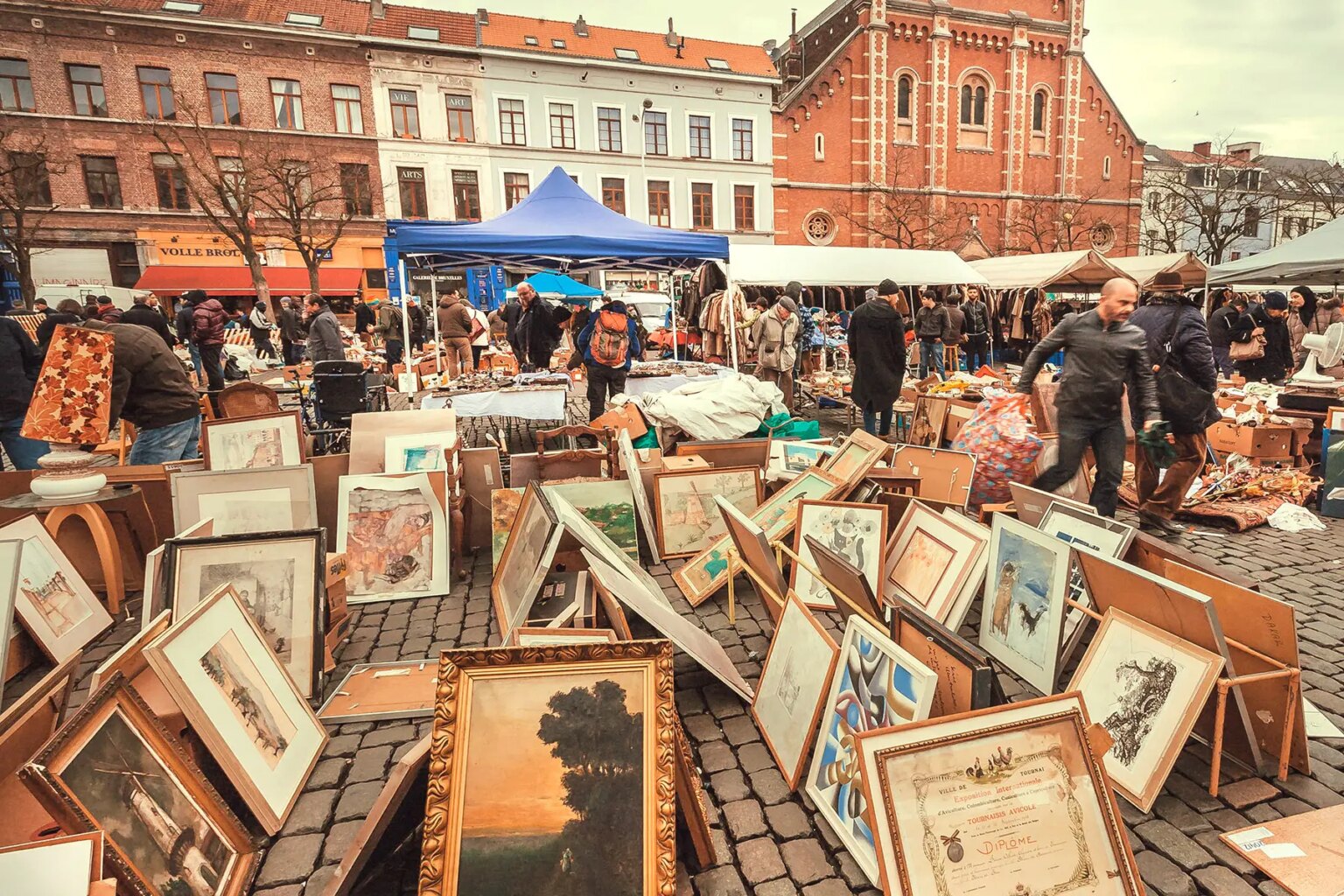Bargaining can be fun if you learn how to haggle. Among many good markets to practice your skills are Waterlooplein in Amsterdam, Portobello Market in London, Puces de Saint-Ouen in Paris, and El Rastro in Madrid. A word of caution: pickpockets enjoy flea markets as much as you do, so be aware of your surroundings.
World Nomads
Want to plan a shopping trip in Europe? Before you set off, it’s important to make sure you have the right travel insurance to cover you along the way. World Nomads offers simple and flexible travel insurance which you can buy at home or on the road. They also offer loads of advice to help you travel more confidently. So what are you waiting for, get a quote today!
Europe’s best flea markets
Flea markets abound across Europe. Whether you’re looking for vintage decorations, clothing, or handicrafts, explore some of the best flea markets that Europe has to offer.
Is bargaining appropriate?
Before you learn how to bargain, you’ll need to know when you should even try it. When browsing, first determine if bargaining is appropriate. It’s bad shopping etiquette to make an offer for a tweed hat in a London department store; it’s foolish not to at an outdoor market in Athens. In Venice, walk away from knock-off goods; the sellers and even the buyers are subject to fines.
To learn if a price is fixed, show some interest in an item, but say, “it’s just too much money.” By doing this, you’ve put the merchant in a position to make the first offer. If he lowers his price even 2%, there’s nothing sacred about the price tag; haggle away.
Determining an item’s worth
Snoop around and find out what locals pay. Prices can vary drastically among vendors at the same flea market. If prices aren’t posted, assume there’s a double price standard: one for locals and one for you. Study ahead before you go, especially if you want to buy something more substantial like a leather coat or a big-ticket item like a Turkish carpet.
To avoid a bad case of buyer’s remorse, decide what an item is worth to you before beginning to haggle. Many tourists think that if they can cut a price in half, they’re doing great. In reality, it’s not unheard of for the merchant to quadruple his price to begin with, with the unwitting tourist paying double the item’s value. The best way to deal with outrageous price tags is to simply ignore them. In determining the item’s value to you, consider the hassles involved in packing it or shipping it home. If a merchant ships an item home for you, remember to have a picture taken of yourself with the item and merchant; it will help you get the item replaced in case it arrives in pieces.
How to bargain? Don’t be too keen
When you find an item that you like, look indifferent to it. As soon as the merchant perceives desire within you, you’ll never get the best price. He assumes tourists have the money to buy everything they see. Your job is to determine the merchant’s lowest price. Many merchants are more than willing to settle for a small profit rather than lose the sale entirely. Promise yourself that no matter how exciting the price becomes, you won’t buy. Work the cost down to rock bottom, and then walk away. That last price the vendor hollers out as you turn the corner is likely the best price you’ll get.
Work as a team with your spouse or a friend. While you bargain, your companion can act the part of naysayer, threatening to squash the deal entirely. This trick can work to bring the price down faster. Obey the rules. Don’t hurry. Bargaining is rarely rushed; learning how to bargain is a slow process that’s all about reading the merchant properly. Show you are serious by taking the time to talk with the shopkeeper. Dealing directly with the owner can lower the price.
When it’s time to buy
If you’re truly ready to buy, show the merchant your cash. Physically hold out the amount you are offering to pay for whatever it is you’re bickering over. The seller will be tempted to just grab your money and agree to the sale.
Prices can drop at the end of the day, when merchants are starting to pack up. Swoop in at closing time to snap up the real deals. If the price is too much, move on. Never worry about having taken too much of the merchant’s time. Vendors are experts at making the tourist feel guilty for not buying; it’s all part of the game.
It’s true that you might find the same souvenirs in a large department store, with a firm price. But where’s the fun in that? Store shopping can be quicker and easier–but it’s never as memorable.



